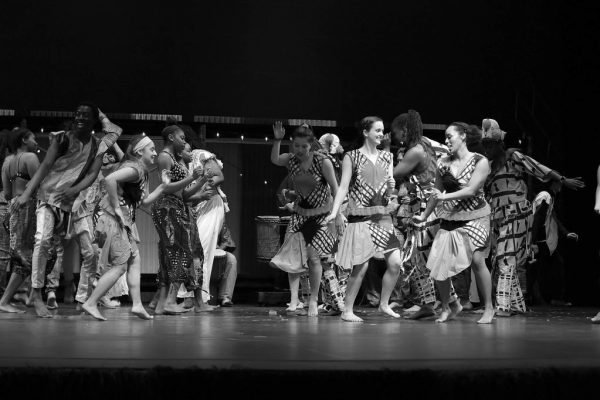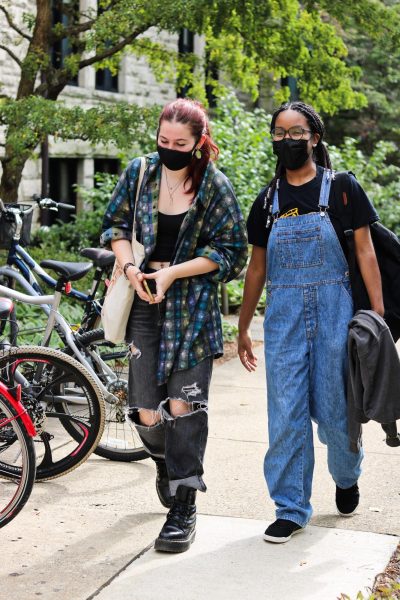Cliques Inhibit First-Years From Fostering Connections
It’s been just a few days shy of a month since I began my first semester of college, and it’s clear as day that cliques are already emerging among my peers. A clique is a group of people, bonded by certain commonalities, that establishes itself as exclusive and typically closes itself off to others. It’s like high school all over again: the jocks in one corner, the bookworms in another. While it’s comforting to know that people have found each other and feel comfortable with their new friends, I have some concerns.
I, too, have found myself closed off. I’ve found a small group of people that makes me happy, and the thought of further branching out is an exhausting notion. I’ve settled into a routine now: same classes, same food, same places, same friends. I don’t really want anything to change.
The issue is, friends made in the first month of your first year of college are rarely permanent. A few weeks ago, on a night walk with a couple of my dormmates, we ran into a third-year who reminded us that we “won’t be friends with one another in a couple weeks.” While I hardly think that’s a fair assessment — my current friends are wonderful and I’m thoroughly enjoying my time with them — what if she’s right in the long run?
What if, by some universal law of college friendships, we are no longer friends by next year? It doesn’t seem entirely out of the realm of possibility — one month is hardly enough time to truly get to know people — but unless something major occurs, I can’t see myself not being friends with them.
To properly understand the human inclination to form cliques, we can turn to psychological study. We feel safer with a smaller, more intimate group of people rather than with clusters of acquaintances. Subconsciously, we tend to associate ourselves with people who are similar to us. According to the Los Angeles Times, humans are more likely to learn from one another, be that socially or academically, if they are similar.
There are other reasons that humans tend to form tight-knit groups. For instance, cliques can emerge as a reaction to larger social norms and patterns. People with shared identities often feel safer with one another, having common lived experiences. So it makes sense that people would clique up.
But while cliquing up might make you feel safe, secure, and relaxed for a while, it will ultimately result in you closing yourself off to a whole host of experiences. Take advantage of the experiences — or don’t, it’s up to you. But by shutting the door, staying in with friends every night, refusing to join clubs, identity spaces, sports, and music groups, you’re refusing to take advantage of the wonderful social opportunities that Oberlin has to offer.
Oberlin has tons of incredible clubs, from musical theater and dance to improv, writing, and jazz. Oberlin is also host to an array of more niche clubs, like OBurlesque and Chess Club. We have both club and intramural sports, like soccer, football, rugby, and even bowling. The Experimental College experience provides students with the opportunity to take classes taught by other students for credit and learn about almost any topic they want, including Taylor Swift, moths, and sexual health.
The process for joining clubs, sports, co-ops, and ExCos is pretty easy. While participating in these extracurriculars may require some initial effort like filling out application forms, the entry points are easy to locate. When I came to Oberlin, I promised myself I would take full advantage of these opportunities. I’ve joined a variety of clubs and music groups, but not in hopes that I would stick with every single one of them for all four years — I may not stick with all of them for even a full semester. I did this because I want opportunities; I want to strengthen the skills I already believe I have. I became a columnist for the Review because I love to write, and I joined an a cappella group because I love to sing. I’m doing what I love, and I’m happy!
I encourage my classmates to seek new experiences, look for new kinds of people, and challenge themselves socially. The college social experience is unique, and nothing in our future will ever replicate this. The ease with which you can join new groups and branch out socially is nothing like it will be later in life. My suggestion? Take advantage of it.




